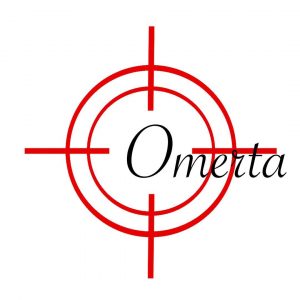
President of Ukraine Volodymyr Zelensky signed law No. 910-IX on amendments to certain laws of Ukraine concerning the promotion of physical culture and sports, the presidential press service said.
“The document is aimed at supporting and developing the sphere of physical culture and sports. The law provides for the granting of the right to lease state-owned and municipal property without an auction to state-owned and municipal sports clubs, youth sports schools, schools of higher sports skills, Olympic training centers, physical culture and health-improving facilities, centers of physical health of the population, centers of physical culture and sports for persons with disabilities, as well as bases of Olympic, Paralympic and Deflympic training,” the presidential press service said.
In addition, the document coordinates the terminology of the current legislation in the field of physical culture and sports with the law of Ukraine on education, in particular, the term “teaching establishment” has been replaced by the term “educational institution.”
The law comes into force one month after the date of its publication.

President of Ukraine Volodymyr Zelensky has signed Verkhovna Rada’s bill No. 2285-d on state regulation on organizing and conducting the gambling activity.
The Ukrainian parliament said on its website that the bill was returned with the signature of the head of state on August 11.

President Volodymyr Zelensky signed the law on amendments to certain Ukraine’s legislative acts on government support of culture, creative industries, tourism, small and medium businesses due to the restrictive measures related to the spread of coronavirus (COVID-19) disease.
“Creative industries, cultural institutions are among those which suffered most from lockdown. After all, their activities have stopped almost completely and now they live in total uncertainty. These are entire sectors of the economy that are now on the brink of survival. They also pay taxes and provide people with jobs, therefore, need no less support than traditional business sectors,” the head of the state said during signing the document.
The Verkhovna Rada of Ukraine adopted law No. 692-IX at second reading on June 16. It was supported by 343 MPs. The document establishes a reduction in property rental fees at the request of the tenant of a cultural institution engaged in entrepreneurial activity using this property, for the entire time that it could not be used.
The document also provides additional opportunities for radio by simplifying procedures by amending the law of Ukraine on advertising.
It is important that the document also stipulates the government support for cinematography in the form of providing a government grant for the development of film projects. It is noted that for national fiction, animated, documentary films, films for children (including artistic and cultural significance), films of artistic and cultural significance (copyright), television films, series and debut films, it can be up to 100% of total estimated cost inclusive.
Amendments are also being made to the law of Ukraine on the rental of state-owned and communal property in order to normalize the provision of paid services in the field of culture and arts by cultural institutions.

Tenants during lockdown have the right to seek for a reduction in rent in court, but this procedure does not really work, Head of Omerta Organized Law Group Yevhen Fedoseyev has said.
“In case of refusal to reduce the rent, the tenant has the right to apply to court for a forced reduction of the rent. After the court decision comes into force, the rent will be reduced by a percentage and for the period that will be indicated in the court decision. But this procedure doesn’t work in practice, with a few exceptions,” he told Interfax-Ukraine, commenting on bill No. 3377 adopted at the final stage by parliament, which offers a mechanism to support tenants during lockdown.
“In order to be able to really reduce the rent or take vacations for the lockdown period, there must be an ideal and detailed lease agreement, which in most cases does not exist. As a rule, the lease agreement is formal,” he said.
Fedoseyev said that in many cases business entities that suspended activities due to lockdown are forced to apply to the Chamber of Commerce and Industry for force majeure certificates.
He also said that currently, the regulatory framework does not provide a mechanism for determining the amount of preferential rents, in particular in situations where, due to circumstances for which the tenant is not responsible, the tenant is not able to use the property. According to the Civil Code, the tenant is exempt from payment for the entire time during which the property could not be used by him due to circumstances for which he is not responsible.

The revocation of lawyer monopoly will oversaturate the legal services market, but will not improve their quality, Head of Omerta Organized Law Group Yevhen Fedoseyev has said.
“The legal market will become even more oversaturated. The activities of a lawyer require adherence to high standards and rules of ethical conduct, which in turn eliminates unethical behavior in the process, which can be observed when a person acting under a power of attorney may abuse procedural rights, disrupt court hearings, and in some cases puts pressure on justice and he is not afraid of disciplinary action,” he said.
The lawyer said that one of the duties of a lawyer is to constantly improve his professional level. At the same time, he said that as a result of the abolition of the lawyer monopoly, “justice will open its doors to a wider circle of people who, due to their financial situation, could not turn to lawyers, but no one has canceled the fact that any lawyer will also not perform work for free.”
“An appeal to a layman who does not know the intricacies of accompanying cases will ultimately cost a lot more,” the lawyer said.
According to Fedoseyev, the introduction of the exclusive right of lawyers to represent interests in court or the so-called lawyer monopoly is an important step for a democratic state, which seeks to effectively and professionally protect the rights and interests of its citizens. In Ukraine, the lawyer monopoly was introduced in 2016 on the basis of a bill amending the Constitution of Ukraine.
“The lawyer monopoly has been building in our country for a long time. Previously, the need for a more professional approach to representation and defense in the courts was not an urgent issue. However, over time and the development of a democratic state, professional and, most importantly, effective defense and representation in courts have become a necessity, since many cases were reviewed only on the basis of the procedural errors in the documents,” he said.
Fedoseyev said that a lawyer is a person who is professionally involved in the defense and representation of citizens in courts, during investigative actions, and similar actions. “Imagine that it’s not doctors, but ordinary amateurs who will treat people. Or someone who wants to entrust a heavy operation to a person who is not a professional in this field? Perhaps this is a rhetorical question,” he said.
The lawyer also suggested that lawyers in criminal cases, who will be affiliated with inexperienced lawyers with whom the participants in the criminal process continue to communicate, may suffer from the abolition of the lawyer monopoly.
“Such “lawyers” in criminal cases will be incompetent to advise parties to criminal proceedings, prepare procedural documents on their behalf and the like. The Institute of Civil Lawyers will also lose a lot, because often only an experienced lawyer can observe ethical standards in civil proceedings, prevent conflicts of interest and “wimping out” of the opponent’s position,” Fedoseyev said.

President of Ukraine Volodymyr Zelensky has signed the law “On Amendments to the Forest Code of Ukraine regarding the National Forest Inventory” No. 643-IX, which the Verkhovna Rada adopted on June 2, 2020.
“The law provides for the creation in Ukraine of a new system of collecting reasonable data on the forest fund for the purpose of further planning, forestry, the state forest cadastre, forest monitoring and the like,” the head of state’s website reported on Tuesday.
The document introduces the concept of a national forest inventory, defines its purpose and sources of financing.
The procedure for conducting a national forest inventory is approved by the Cabinet of Ministers of Ukraine, it will be carried out at the expense of the state budget or other sources not prohibited by law.
According to the law, persons authorized to conduct a national forest inventory during examinations have the right to be on land plots of the forest fund of Ukraine, except as otherwise provided by law.
Information obtained from the results of the national forest inventory is entered into the state land cadastre.
The law comes into force on the day after its publication.